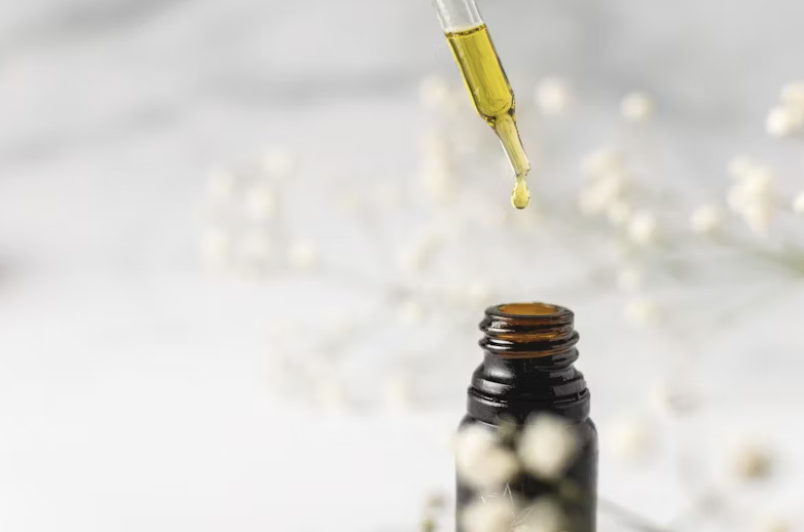Welcome back to the second installment of our comprehensive look into the future of skincare. In Part 1, we explored groundbreaking trends such as bio-retinol, niacinamide, and algae extracts, which are set to redefine beauty standards. Now, in Part 2, we delve into the next ten trends that continue to shape the industry, pushing the boundaries of innovation and effectiveness. From the emergence of clean beauty to the rise of personalized skincare solutions, these trends are tailoring the skincare experience to meet the evolving needs and values of consumers worldwide. Join us as we uncover how these advancements promise to enhance your skincare regimen.
If you missed the first part of our series and want to catch up on the trends that are currently transforming skincare, you can read it here.
11. Vegan and Cruelty-Free Products: Ethical and Compassionate Choices
Vegan and cruelty-free skincare continues to gain momentum as consumers increasingly prioritize ethical standards in their purchasing decisions. These products ensure no animal-derived ingredients and no animal testing, appealing to an audience committed to animal welfare and environmental sustainability. The popularity of vegan and cruelty-free products is not only a testament to shifting consumer ethics but also to the advancements in plant-based formulations that do not compromise on effectiveness.
12. Blue Light Protection: Digital Age Defense
As our exposure to digital devices increases, skincare products that offer protection against blue light have become essential. These products are formulated to shield the skin from the harmful effects of prolonged exposure to blue light emitted by screens, which can accelerate skin aging and contribute to the appearance of fine lines and dullness. Incorporating antioxidants and specific light-blocking ingredients, these products are crucial for anyone looking to protect their skin in the digital age.

13. Fermented Ingredients: Unlocking Potent Benefits
Fermented skincare ingredients are transforming beauty routines by enhancing the potency and absorbability of active ingredients. The fermentation process breaks down substances into simpler forms, making them more bioavailable and easier for the skin to absorb. Skincare products with fermented ingredients are particularly effective in delivering deep hydration, improved skin barrier function, and increased brightness, catering to consumers seeking more powerful and effective skincare solutions.
14. Multi-Purpose Products: Streamlined Skincare
The trend towards multi-purpose skincare products is driven by a growing consumer preference for simplicity and efficiency in their beauty routines. These versatile products combine multiple benefits, such as moisturizing, anti-aging, and sun protection, in a single formulation. This not only simplifies the skincare regimen but also reduces the environmental impact associated with producing and packaging multiple products.
15. Eco-Friendly Packaging: Reducing Environmental Impact
The movement towards sustainable practices in the skincare industry is strongly reflected in the shift to eco-friendly packaging. Brands are increasingly adopting materials that are recyclable, biodegradable, or refillable, significantly reducing their environmental footprint. This trend resonates deeply with eco-conscious consumers and reflects a broader commitment to environmental responsibility within the skincare industry.
16. CBD: Soothing and Anti-Inflammatory
CBD in skincare continues to rise in popularity due to its potent anti-inflammatory properties, which help soothe irritation, reduce redness, and calm skin conditions like acne and eczema. This natural compound is extracted from cannabis plants but does not have psychoactive effects. Instead, it works topically to enhance skin health by interacting with the body’s natural cannabinoid receptors, making it a valuable ingredient for those seeking gentle yet effective skincare solutions.

17. Bakuchiol: The Gentle Retinol Alternative
Bakuchiol has emerged as a powerful plant-based alternative to retinol, offering similar benefits without the skin irritation often associated with its more potent counterpart. It works by stimulating cell turnover and boosting collagen production, which helps reduce fine lines and improve skin texture. Suitable for all skin types, including sensitive skin, bakuchiol is perfect for those looking for a natural ingredient that delivers anti-aging results without harsh side effects.
18. Copper Peptides: Revitalizing Skin Health
Copper peptides are small fragments of proteins combined with a copper molecule, known for their ability to heal, restore, and protect the skin. These peptides support skin regeneration, promote elastin and collagen production, and act as antioxidants to defend against damaging free radicals. Their inclusion in skincare products helps to firm the skin, enhance its elasticity, and give it a youthful glow, making them a favorite in age-defying skincare formulations.
19. Emphasis on Skin Barrier: Protective and Restorative
The focus on strengthening the skin’s barrier has become a critical trend in skincare. Products aimed at enhancing the barrier function help to protect the skin from environmental pollutants, irritants, and allergens, while maintaining moisture levels. Ingredients like ceramides, fatty acids, and cholesterol are used to repair and reinforce the barrier, ensuring that the skin remains healthy, resilient, and hydrated.
20. Minimalist Skincare: Simplified Beauty Routines
The minimalist skincare movement advocates for using fewer products but ensuring they are effective and of high quality. This trend not only simplifies daily beauty routines but also helps to reduce waste and minimize the risk of skin irritation from overuse of products. Consumers are increasingly turning to multifunctional products that can perform several tasks at once, allowing for a streamlined, efficient approach to skincare.
As we conclude Part 2 of our exploration into the most influential skincare trends for 2025, we hope you have found valuable insights into the innovations that are shaping the future of beauty and wellness. These trends not only reflect advancements in skincare science but also a growing commitment to sustainability, health, and personalization in beauty products. We invite you to join the discussion and share your thoughts on these emerging trends. How will they impact your skincare choices? Let’s continue this conversation and embrace the exciting changes these innovations bring to our daily routines.





